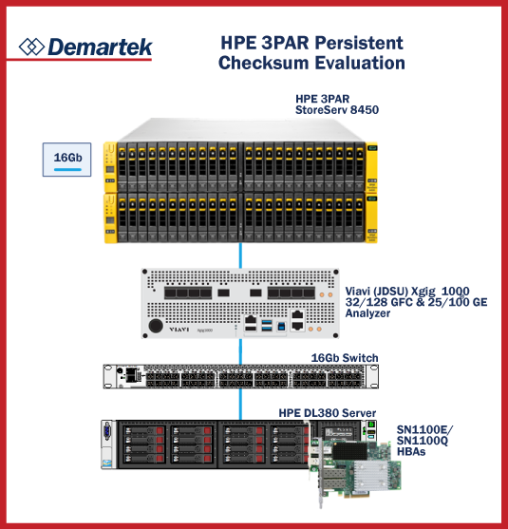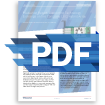Demartek Evaluation: HPE 3PAR Persistent Checksum
November 2016
Data integrity is the term applied to the reliability of data written to storage and later retrieved for processing. The IT industry at large has several mechanisms to help make sure that data integrity is maintained in the software and hardware layers of application environments. Transaction or redo logging and checksums are common examples of application-level mechanisms, although their use cases are different. Hardware, such as storage systems, also employ integrity checks, which may include error correction codes (ECC), cyclic redundancy checks, and also checksum logic (similar to that performed by applications), along with other algorithms.
However, modern storage systems, in particular powerful, high-speed, flash-enhanced and all-flash systems, have increased in speed and capacity to such a degree that they can effectively outperform the rate at which media errors are caught and corrected. Likewise, storage network protocols like Gen 5 and Gen 6 Fibre Channel support such high bandwidths that a large number of recurring errors in the SAN can be delivered to storage media or applications very quickly, which may exacerbate problems. The challenge IT vendors face is identifying and remediating any data integrity issue before it manifests in detectable problems.
Some Tier-1 storage products are now equipped with integrity checksum processes. These processes are designed to verify that data transmitted from the server is identical to data actually received by the storage array and vice versa. HPE 3PAR StoreServ Storage arrays are one such solution. All 3PAR StoreServ Storage models, such as the all-flash HPE 3PAR StoreServ 8450 Storage array, feature built-in, end-to-end data integrity checking to eliminate the risk of bad data — a technology called 3PAR Persistent Checksum.
In 2003, the T10 committee (the committee for SCSI Storage Interfaces) of the International Committee for Information Technology Standards proposed additional end-to-end data integrity protection (from host CPU to media). The standard includes the addition of a Data Integrity Field (DIF) in computer storage devices as a way for computer systems to detect changes in data that occur during transmission from a host to media or during writes to the media. All HPE 3PAR StoreServ 7000, 8000, 10000 and 20000 systems have back-end T10 DIF protection.

|

View the Demartek Evaluation: HPE 3PAR Persistent Checksum (PDF, 476 KB) |


 We are pleased to announce that Principled Technologies has acquired Demartek.
We are pleased to announce that Principled Technologies has acquired Demartek.